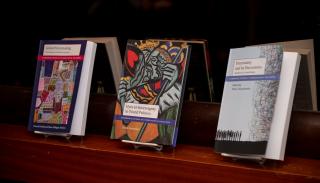Breadcrumbs navigation
Our book series
Cambridge Studies in International Relations is a joint initiative we have undertaken with Cambridge University Press (CUP). The series comprises over 150 books and publishes the best new scholarship in International Studies, irrespective of subject matter, methodological approach or theoretical perspective. We seek to bring the latest theoretical work in International Relations to bear on the most important problems and issues in global politics. The book series was established in 1985 and publishes three to four books per year.
Watch the video below to find out about the series, some of the groundbreaking works that have been published in it, what we're looking for from new books and what you should include in your proposal.
Editors
- Evelyn Goh
- Christian Reus-Smit
- Nicholas J Wheeler
- Cambridge University Press Editor: John Haslam: jhaslam@cambridge.org
Editorial Board: Jacqueline Best, Karin Fierke, William Grimes, Yuen Foong Khong, Andrew Kydd, Elizabeth Shakman Hurd, Jacqui True, Leslie Vinjamuri, Alexander Wendt
Featured titles
You can browse through and purchase the full series on the CUP website. If you’re a BISA member you’re entitled to a 40% discount on any title in the series, as well as 25% off any other CUP titles. Access your discount by entering the code supplied in your membership welcome email.
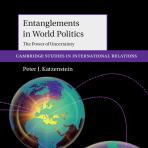
Peter J Katzenstein, Cornell University, New York
December 2025
ISBN: 9781009675772
In this seminal study, Peter J Katzenstein drags the analysis of world politics from the Newtonian humanism of the nineteenth century into a new post-Newtonianism of the twenty-first. The key concept is entanglement. By examining differences in context, process, and language, Katzenstein specifies how risk and uncertainty intertwine. Three deeply researched case studies – finance and political economy, nuclear crisis politics and war, and global warming and AI – support his original arguments. A chapter on power further illustrates the risk-uncertainty conundrum. Entanglements in World Politics calls for humility and eclectic pragmatism, emphasizing the unity of knowledge of the natural and humanistic sciences and the complementarities of science and religion. Katzenstein's engaging writing and innovative approach make this a must-read for anyone interested in the complexities of global politics. This book is also available as Open Access on Cambridge Core.
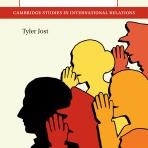
Tyler Jost, Brown University, Rhode Island
ISBN: 9781009307222
May 2024
Why do states start conflicts they ultimately lose? Why do leaders possess inaccurate expectations of their prospects for victory? Bureaucracies at War examines how national security institutions shape the quality of bureaucratic information upon which leaders base their choice for conflict – which institutional designs provide the best counsel, why those institutions perform better, and why many leaders fail to adopt them. Jost argues that the same institutions that provide the best information also empower the bureaucracy to punish the leader. Thus, miscalculation on the road to war is often the tragic consequence of how leaders resolve the trade-off between good information and political security. Employing an original cross-national data set and detailed explorations of the origins and consequences of institutions inside China, India, Pakistan, and the United States, this book explores why bureaucracy helps to avoid disaster, how bureaucratic competition produces better information, and why institutional design is fundamentally political.
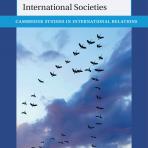
Jack Donnelly, University of Denver
ISBN: 9781009355186
October 2023
Inspired by recent work in evolutionary, developmental, and systems biology, Systems, Relations, and the Structures of International Societies sketches a robust conception of systems that grounds a new conception of levels (of organization, not merely analysis). Understanding international systems as multi-level multi-actor complex adaptive systems allows explanations of important features of the world that are inaccessible to dominant causal and rationalist explanatory strategies. It also develops a comprehensive critique of IR's dominant conception of systems and structures (narrow, rigid, and unfruitful); presents a novel conception of the interrelationship of the social production of continuities and the social production of change; and sketches models of spatio-political structure that cast new light on the development of international systems, including a distinctive account of the nature of globalization.
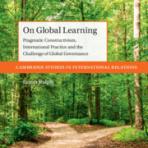
Jason Ralph, University of Leeds
ISBN: 9781009385787
September 2023
Global security, climate and health challenges have all created a deep-seated unease about international society's capacity to cope with change. International Relations should help practitioners develop appropriate responses, but Jason Ralph argues that IR would be better positioned to do so if it drew more explicitly on the insights of classical Pragmatism. By bringing this tradition in from the margins, Ralph comprehensively engages norm, practice, realist and global IR theory to extend the 'new constructivist' research agenda in a normative direction. He develops a 'Pragmatic Constructivist' approach to assess how well communities of practice facilitate the learning that mitigates emergent social problems and improves lived experiences. This normative assessment focuses on the extent to which communities of practice are characterized by inclusive reflexivity and deliberative practical judgment. These two tests are then applied to critique existing communities of practice, including the UN Security Council, the UNFCCC and the WHO.
